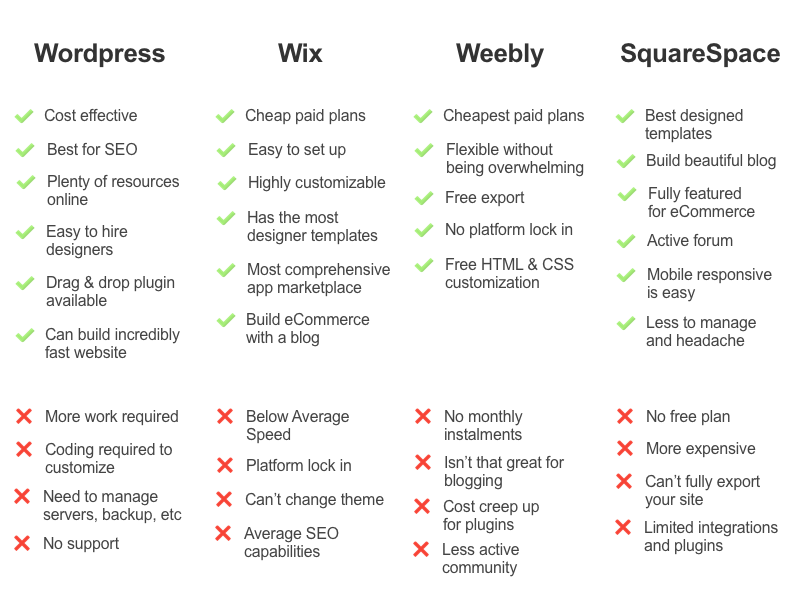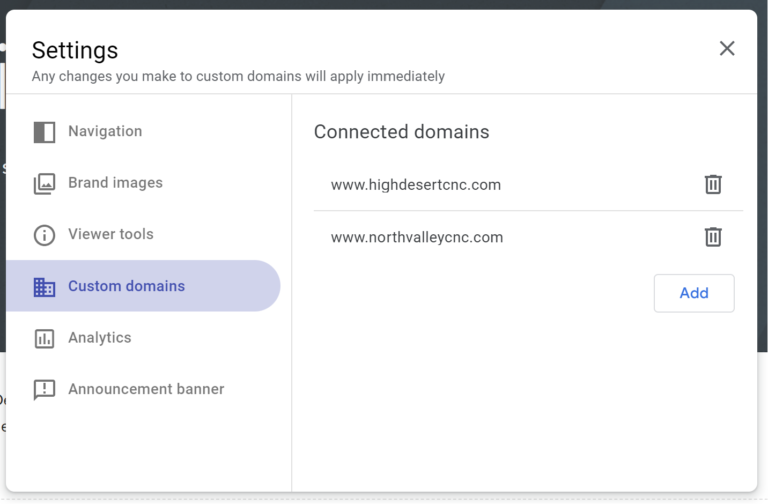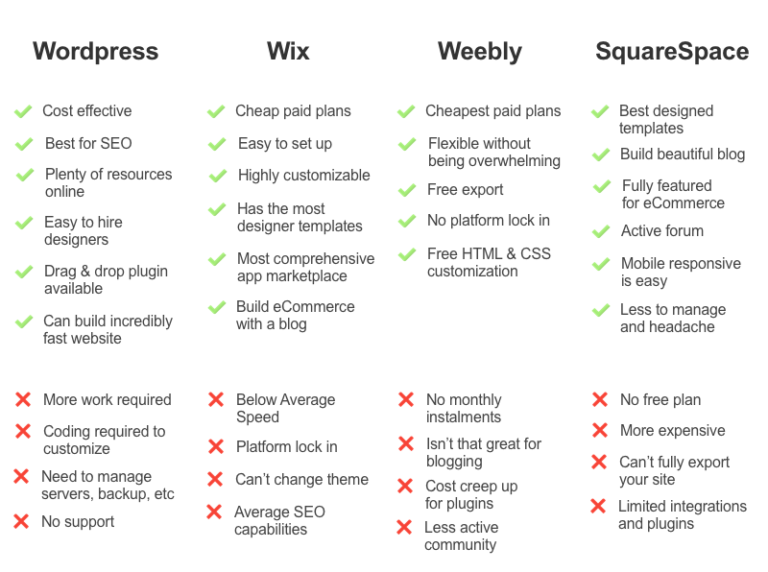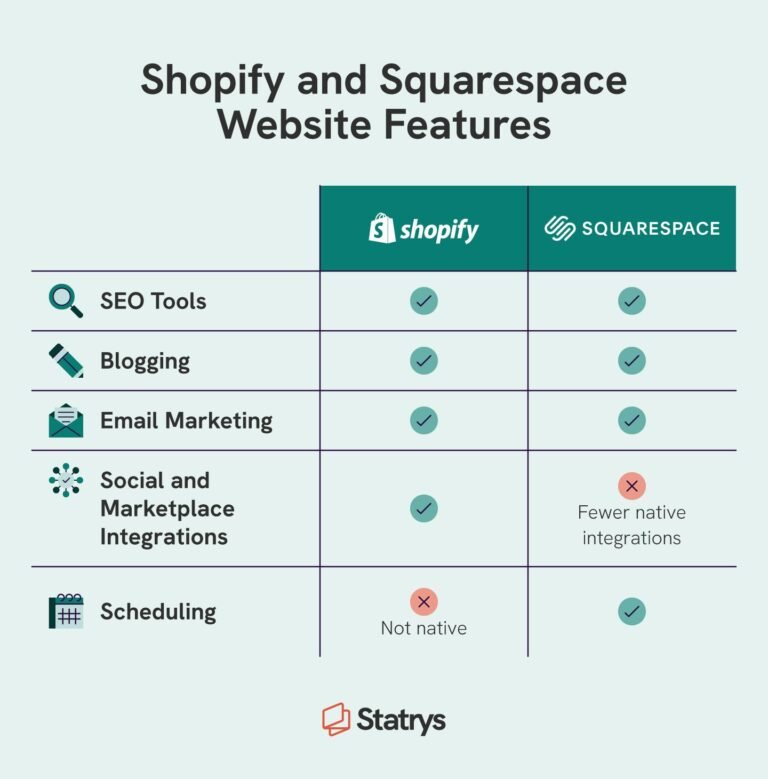Pros And Cons of Squarespace Vs WordPress
Choosing the right website builder is crucial. Squarespace and WordPress are two popular options.
Both have unique features and benefits. Comparing Squarespace and WordPress can help you decide which suits your needs best. Squarespace offers a user-friendly interface and beautiful templates, ideal for beginners. WordPress, on the other hand, provides more customization and flexibility, making it a favorite for developers and advanced users.
Understanding the pros and cons of each platform ensures you make an informed decision. This comparison will dive into the strengths and weaknesses of Squarespace and WordPress, helping you choose the best tool for your website goals. Stay tuned to discover which platform aligns with your vision and technical skills.

Credit: kinsta.com
Ease Of Use
Choosing between Squarespace and WordPress often boils down to ease of use. Both platforms offer unique experiences for users. Let’s dive into the specifics of their user interfaces and learning curves.
User Interface
Squarespace’s interface is sleek and intuitive. Users can easily navigate through menus. The drag-and-drop feature simplifies page design. Editing content is straightforward with visual blocks. This makes it user-friendly, even for beginners.
WordPress has a more complex interface. It offers more customization options. This can be overwhelming for new users. The dashboard has many menus and submenus. This requires some time to get used to.
Learning Curve
Squarespace has a gentle learning curve. Most users can build a site quickly. Its guided tutorials and support make the process smooth. Users can create professional-looking sites without coding knowledge.
WordPress has a steeper learning curve. It offers powerful features and flexibility. Users need time to learn its full potential. Knowledge of plugins and themes is essential. This can be challenging for beginners. But it rewards those who invest the effort.
Design And Customization
Design and customization are key factors when choosing a website platform. They determine how unique and functional your site will be. Squarespace and WordPress each offer different strengths in this area.
Template Options
Squarespace provides a collection of modern, sleek templates. These are designed by professionals and cover various industries. Each template is mobile-responsive, which means your site looks good on any device.
WordPress, on the other hand, offers thousands of themes. These range from free to premium. The variety is vast, catering to almost any niche you can think of. Some themes may require coding knowledge for advanced customization.
Customization Flexibility
Squarespace allows you to customize your template through an easy-to-use interface. You can change colors, fonts, and layouts without touching any code. The platform also provides built-in tools for SEO and marketing.
WordPress excels in customization flexibility. You can tweak almost every aspect of your site. This is done through plugins and custom code. There are many plugins available for SEO, social media, and more. This makes WordPress very versatile, but it may require some technical skills.
Pricing And Plans
When choosing between Squarespace and WordPress, understanding their pricing and plans is crucial. This helps you decide which platform fits your budget and needs. Both offer different pricing structures and features, tailored to various user requirements.
Squarespace Pricing
Squarespace offers straightforward pricing plans. These plans are ideal for beginners and small businesses.
| Plan | Monthly Cost | Features |
|---|---|---|
| Personal | $16 | Basic features, SSL, and templates |
| Business | $23 | Advanced features, e-commerce, and marketing tools |
| Basic Commerce | $27 | No transaction fees, advanced e-commerce features |
| Advanced Commerce | $49 | All features, including abandoned cart recovery |
Squarespace includes hosting, security, and customer support in their plans. You do not need to purchase these separately. This makes it simple for users to manage their websites.
WordPress Pricing
WordPress itself is free, but you must pay for hosting and other services. The costs can vary based on your chosen hosting provider and additional services. Here is a breakdown of potential costs:
- Hosting: $3 to $30 per month, depending on the provider.
- Domain: $10 to $15 per year.
- Themes: Free to $100, depending on customization needs.
- Plugins: Free to $200, based on functionality.
WordPress offers flexibility, allowing you to choose your hosting and additional features. This can be cost-effective, but it requires more management and technical knowledge.
Here is a comparison table for better clarity:
| Expense | Squarespace | WordPress |
|---|---|---|
| Hosting | Included | $3 to $30/month |
| Domain | Included for the first year | $10 to $15/year |
| Themes | Included | Free to $100 |
| Plugins | Included | Free to $200 |
Squarespace offers a more all-in-one solution with predictable pricing. WordPress provides flexibility and customization but may require additional costs and management.
Performance And Speed
Performance and speed are critical for any website. They affect user experience and SEO. Let’s explore the performance and speed of Squarespace and WordPress.
Loading Times
Loading times are crucial for user retention and SEO. Faster websites rank higher on search engines. Here’s how Squarespace and WordPress compare in this aspect:
| Platform | Average Loading Time |
|---|---|
| Squarespace | 2.9 seconds |
| WordPress | 2.3 seconds |
Squarespace offers optimized servers and CDN. This ensures decent loading times. But, WordPress often loads faster. This is due to its flexibility and plugin options.
Optimization Options
Both platforms offer optimization options to boost speed. Let’s break down these options:
- Squarespace: Built-in CDN, image compression, and minimal customization.
- WordPress: Extensive plugins for caching, image optimization, and more.
Squarespace comes with built-in tools. These are easy for beginners. But, they offer limited customization.
WordPress shines with its plugins. You can use caching plugins like W3 Total Cache. Or image optimization plugins like Smush. You can also choose fast hosting providers.
WordPress also allows custom code tweaks. This gives tech-savvy users more control over performance.
Seo Capabilities
SEO capabilities are crucial for any website. Both Squarespace and WordPress offer tools to improve search engine rankings. However, their approaches and offerings differ. Let’s explore the key aspects of their SEO capabilities.
Built-in Seo Tools
Squarespace comes with built-in SEO tools. You can edit meta titles, descriptions, and URLs easily. It also provides automatic sitemaps and clean URLs. Squarespace simplifies SEO tasks for beginners.
WordPress offers some built-in SEO features too. Users can edit meta tags and create clean URLs. However, its built-in tools are more limited compared to Squarespace. To unlock full potential, users often rely on plugins.
Third-party Plugins
WordPress excels with third-party plugins. Popular plugins like Yoast SEO and All in One SEO Pack enhance SEO capabilities. These plugins offer advanced features. You can manage meta tags, sitemaps, and social sharing seamlessly.
Squarespace lacks extensive third-party plugins. Its built-in tools cover basic SEO needs. For advanced SEO, users might find Squarespace limiting. They must work within the platform’s constraints.
In summary, Squarespace offers simplicity. WordPress provides flexibility through plugins. Choose based on your SEO needs and expertise.

Credit: kinsta.com
E-commerce Features
Choosing between Squarespace and WordPress for your e-commerce needs can be challenging. Both platforms offer robust e-commerce features, but each has its strengths and weaknesses. Let’s break down some essential aspects of their e-commerce capabilities.
Online Store Setup
Squarespace provides an easy-to-use interface for setting up an online store. Its drag-and-drop builder simplifies the process, making it accessible even for beginners. Pre-built templates help you create a professional-looking store without coding skills.
WordPress requires a bit more effort to set up an online store. You need to install plugins like WooCommerce to add e-commerce functionality. While this offers more customization, it may be overwhelming for beginners.
| Platform | Ease of Setup | Customization |
|---|---|---|
| Squarespace | Very Easy | Limited |
| WordPress | Moderate | High |
Payment Integration
Squarespace offers built-in payment processing options. It supports major payment gateways like Stripe and PayPal. This makes it easy to start accepting payments right away.
WordPress offers more flexibility with payment integration. With plugins, you can add various payment gateways, including lesser-known ones. This offers more options but requires more setup time.
- Squarespace:
- Built-in payment options
- Supports Stripe and PayPal
- Simple setup
- WordPress:
- Flexible payment options
- Supports many gateways
- Requires plugins
In summary, Squarespace offers a straightforward setup with limited customization. WordPress provides more flexibility but demands more effort. Choose based on your needs and technical skills.
Support And Resources
Support and resources are crucial factors when choosing a website builder. Squarespace and WordPress offer different types of help. Understanding the support and resources can guide your decision.
Customer Support
Squarespace provides 24/7 customer support through live chat and email. They also offer a detailed help center. The help center includes guides and tutorials. Squarespace’s customer support is known for its quick response times. You can expect to get help within minutes.
WordPress, on the other hand, does not offer direct customer support. WordPress.org relies on community support. Users can seek help on forums and discussion boards. Premium themes and plugins may offer support. But this varies by provider. Response times can vary greatly.
Community And Tutorials
Squarespace has an active user community. The Squarespace Forum is a place to ask questions and share tips. Users can also find numerous tutorials on the Squarespace blog and YouTube channel. These resources are easy to follow and helpful.
WordPress has a larger community. Thousands of forums, blogs, and tutorials are available. The WordPress Codex is the official documentation. It covers almost everything you need to know. Many third-party websites offer detailed guides and tutorials. Users can find help on almost any topic.
Security
When choosing a website builder, security is a critical factor. Both Squarespace and WordPress have unique security features. Understanding these can help you make an informed decision.
Built-in Security Features
Squarespace offers robust built-in security. It includes SSL certificates for all domains. This ensures secure connections for your visitors. Squarespace also has built-in DDoS protection. This helps prevent malicious attacks. Regular updates keep the platform secure.
WordPress has basic built-in security features. Core updates are essential for security. WordPress also supports SSL, but you must set it up. Built-in features are limited, so additional measures are often needed.
Third-party Security Options
Squarespace limits third-party security options. This is due to its closed ecosystem. The platform handles most security aspects. Therefore, you don’t need to worry about third-party plugins.
WordPress offers extensive third-party security options. You can choose from various security plugins. Some popular options include:
- Wordfence
- Sucuri
- iThemes Security
These plugins offer features like malware scanning and firewall protection. You have more control over your site’s security with WordPress.

Credit: bullet.so
Frequently Asked Questions
What Are The Main Differences Between Squarespace And WordPress?
Squarespace is a user-friendly website builder with drag-and-drop features. WordPress is a more flexible platform that requires some technical knowledge. Squarespace is ideal for beginners, while WordPress offers more customization options.
Which Is More Beginner-friendly, Squarespace Or WordPress?
Squarespace is more beginner-friendly because of its intuitive drag-and-drop interface. WordPress has a steeper learning curve but offers more customization for advanced users.
Can I Customize My Website More On WordPress?
Yes, WordPress offers extensive customization options through plugins and themes. Squarespace has limited customization compared to WordPress, but it is easier to use for beginners.
Is Squarespace Or WordPress Better For E-commerce?
WordPress is better for e-commerce due to its flexibility and extensive plugins like WooCommerce. Squarespace offers built-in e-commerce features but lacks the extensive customization of WordPress.
Conclusion
Choosing between Squarespace and WordPress depends on your needs. Squarespace offers simplicity and ease. WordPress provides more flexibility and control. Both have their strengths and weaknesses. Consider your technical skills and budget. Think about your goals and preferences. This will help you decide.
Squarespace suits beginners and small businesses. WordPress works for larger sites with more features. Weigh the pros and cons carefully. Make the best choice for your website.





